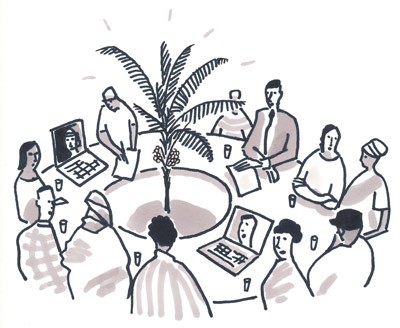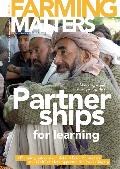Getting people who have polarised views to sit together, listen to and learn from one another is a major challenge. Take the palm oil industry, for example. A product of the humid tropics, palm oil is currently the most important and versatile vegetable oil on the world market and demand keeps increasing.

“The scale and format of these consultations were new for us,” explains Joyce Msuya, who oversaw the recent WBG palm oil consultations. Nine face-to-face workshops were held around the world with nearly 400 (out of 1,200 invited) people from civil society organisations, local groups, businesses, smallholders, government and research institutions participating. Thousands more took part in an electronic consultation.
Msuya is happy with the amount of useful feedback received from all the stakeholders. The consultations brought up many concerns that will need to be addressed in the WBG’s new palm oil strategy, although as Msuya says, “we never set out to get 100 percent agreement between them all.” The facilitators’ synthesis report does show some agreement, as stakeholders made “strong calls for the WBG to take a strategic role in the sustainable development of the sector.”
Msuya identifies a number of factors that contributed to the success of the consultations. Firstly, “we designed it to be as dynamic, open and transparent as possible.” For example, a website was created to post summaries of all the consultations and reports immediately. An independent facilitator, using varied participatory methods, also helped set the tone.
“We were lucky to get an excellent facilitator who was perceived as objective and neutral throughout the consultations. He helped us to take an iterative approach, which means that we kept adjusting the process as we learned more about what worked best and what not so well,” says Msuya. The “up-front and candid” face-to-face consultations played a key role in getting participants to voice their views while also being able to agree to disagree in a “mature way”. Msuya explains this further: “People needed to understand their connectivity. We all have more in common than differences – we all want the sector to be sustainable, inclusive and to reduce poverty”.
The concept of partnership was also important – that all participants have a role to play, while recognising the many challenges that exist.
Text: Mundie Salm
Illustration: Fred Geven

